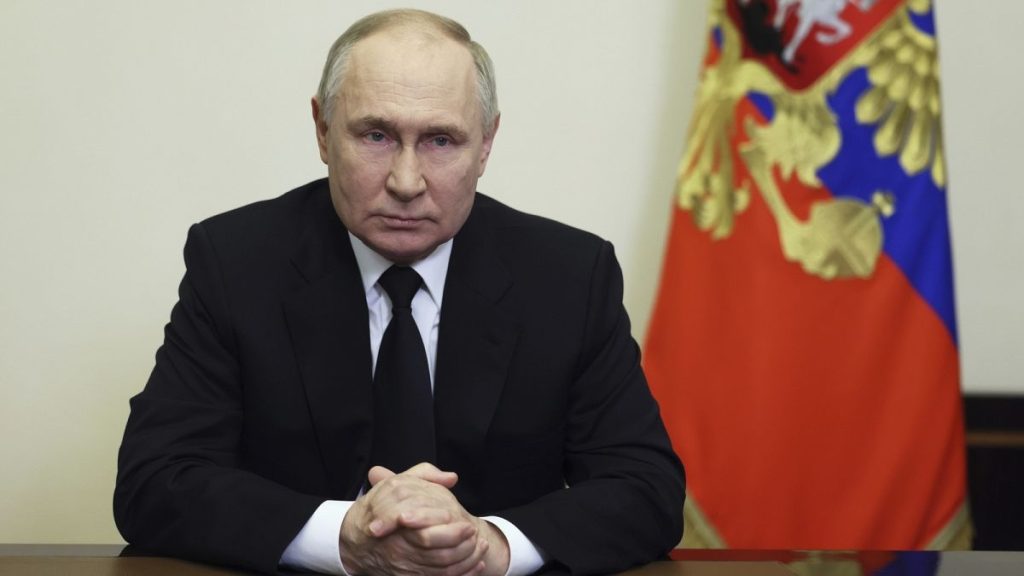The European Union has warned Russian President Vladimir Putin not to use the recent Moscow terror attack as an excuse to escalate the war against Ukraine. Russian officials had accused Kyiv of involvement in the attack at a concert venue that killed 137 people and injured over 180. However, the EU rejected these claims, stating that there is no evidence linking Ukraine to the attack. The EU urged Russia not to use the terrorist attack as a justification for increasing aggression against Ukraine or cracking down on critics of the Russian regime. The Islamic State (IS) group has claimed responsibility for the attack, but Russia has not acknowledged this claim.
In response to the attack, Putin attempted to link Ukraine to the assailants, claiming they were trying to flee towards the Ukrainian border. However, Ukrainian President Volodymyr Zelensky firmly rejected these claims, accusing Putin of using the attack to deflect attention from Russia’s failure to prevent the attacks. Zelensky’s advisor described the Russian accusations as baseless and absurd. The attack has been seen as a political setback for Putin, who recently claimed a landslide victory in controversial presidential elections. The attack has also highlighted Russia’s vulnerability to terror due to the strained international relationships following its invasion of Ukraine.
The EU has suspended cooperation with Russia on fighting terrorism due to Russia’s disregard for international humanitarian law following the invasion of Ukraine. Despite this, the EU has stated that it would consider a credible proposal from Russia to combat terrorism. However, given Russia’s current actions, such as oppressing its domestic population and engaging in illegal wars, it is unlikely that cooperation will resume in the near future. European leaders have expressed solidarity with the victims of the attack but have refrained from addressing Putin directly or expressing support for his government. The attack has led France to raise its terror alert to the highest level.
The Moscow terror attack has raised fears in Europe that Putin may use the incident as a pretext to escalate the conflict with Ukraine, which has been ongoing for three years. The EU has emphasized that there is no evidence linking Ukraine to the attack and has called on Russia to refrain from using the incident to justify further aggression. The IS group’s claim of responsibility for the attack has been corroborated by US intelligence sources, but Russia has not acknowledged this claim. The attack has highlighted Russia’s vulnerability to terrorism and strained international relationships following its actions in Ukraine.
The accusations made by Russian officials linking Ukraine to the Moscow terror attack have been strongly rejected by Ukrainian President Zelensky and his advisors. They have accused Putin of using the attack to deflect attention from Russia’s own failures. The attack has been seen as a political setback for Putin, who recently claimed a controversial victory in presidential elections. The attack has also led to increased security measures in Europe, with France raising its terror alert to the highest level. Despite the tragedy, European leaders have expressed solidarity with the victims of the attack while refraining from directly addressing Putin or expressing support for his government.


